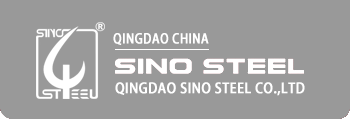Blocking Huawei has a negative impact on US suppliers
2019-05-20
Blocking Huawei has a negative impact on US suppliers
Xinhua News Agency, Washington, May 17 (Reporter Zhou Zhou) The US Department of Commerce announced that it will implement export controls on Huawei, which will not only interfere with Huawei's normal operations, but will also have a negative impact on US chip and telecommunications equipment companies, causing concern in the US industry. .
The US Department of Commerce's Industrial and Security Bureau announced on the 15th that it will include Huawei in the "list of entities". Enterprises or individuals on the list need to obtain relevant licenses to purchase or obtain US technology through transfer. If the United States believes that the sale or transfer of technology harms US national security or foreign policy interests, it will refuse to issue a license.
This move immediately negatively affected many technology giants and start-ups in Silicon Valley. At the close of the US stock market on the 17th, Huawei, Qualcomm, Broadcom, Micron, Sijiaxun, Corvo, Xilinx and Xinfeitong continued to lower their share prices in the US, reflecting the market's abuse of export controls to the US Department of Commerce. The general anxiety of measures of behavior.
Qualcomm is one of Huawei's competitors in the 5G field, but the US Department of Commerce's move did not bring Qualcomm benefits to the stock price. Qualcomm shares fell for two consecutive days, from $86.26 per share at the close on the 15th to $81.50 per share at the close of the 17th.
Compared with industry giants, emerging technology companies in Silicon Valley are more vulnerable to market shocks. After the United States announced that Huawei will be included in the "list of entities", the market analysis company "MKM Tongren" lowered the rating of Xinfeitong from "buy" to "neutral" and lowered the target price from $9 per share to The stock was 4.5 US dollars. As a result, the company's stock fell 20.63% on the 16th, and continued to fall 15.42% on the 17th. The closing price was only 3.84 US dollars per share.
New Feitong, based in California, produces high-speed data transmitters for 5G networks. The company's annual report shows that 46% of company revenue in FY18 comes from Huawei and its subsidiary, HiSilicon, which is 6 percentage points higher than FY2017.
Huawei is a major customer of many US high-tech communications companies such as Xinfeitong. According to data from several companies' annual reports, RF device supplier Sijiaxun's net income of about 10% in FY2017 is from Huawei; another RF device supplier, Corvo, has about 8% of its net income from Huawei in 2018; Huawei's field programmable gate Array (FPGA) device supplier Xilinx about 26% of its net income in FY 2018 came from China, and about 10% of it was reported to be from Huawei.
After the US Department of Commerce implemented export controls, these Huawei suppliers immediately felt the market impact. Sijiaxun, Corvo and Xilinx stocks fell 6.04%, 7.14% and 7.27% respectively on the 16th, and continued to fall on the 17th, down 4.84%, 6.14% and 1.29% respectively.
In fact, the global semiconductor market is not booming. As a supplier of Huawei, Qualcomm, Micron and other US chip makers saw a sharp drop in revenue in the fourth quarter of 2018. Industry analysts expect that industry growth in 2019 may fall from double digits to single digits. Only 5G and artificial intelligence markets are expected to become bright spots. In this context, the US export control order will undoubtedly make the industry worse.
Mizuho Securities analyst Vijay Rakesh said in an analysis report to clients that the impact of export control orders on the semiconductor supply chain is immediate. Huawei accounts for about 20% to 30% of the global network and 5G infrastructure market. It is also an important customer of mobile phone RF devices, memory, 5G solutions and artificial intelligence technologies in the United States.
The data shows that Huawei spent $70 billion on spare parts and other supplies in 2018, of which about $11 billion went to US companies.
John Neufer, president of the American Semiconductor Industry Association, issued a statement on the 16th, urging the US government to take action in a "completely transparent manner" and "listen to the opinions of the US industry."
Although major telecom operators in the United States have not purchased Huawei equipment, some small telecom operators in rural areas of the United States still use Huawei equipment. US Commerce Secretary Ross admitted in an interview with Bloomberg Television on the 16th that some companies may not be able to find alternative products in the short term, and it is difficult to replace the equipment “completely”.
Nicholas Negroponte, director of the Media Lab at the Massachusetts Institute of Technology, wrote earlier this month that the blockade of Huawei will make small telecom operators in rural areas of the United States unable to use 5G technology in the next few years.
Negroponte said that if more than 90% of wireless devices are from Ericsson and Nokia, this kind of market concentration will increase the purchase cost of small telecom operators and even face bankruptcy risks, and on the other hand, bring to the US job market. To adversely affect.
Jason Oxman, president of the Information Technology Industry Association of the United States, believes that administrative orders are “out of the box” and that any decision to limit the purchase of a company should be based on evidence and a rigorous analysis of risk. He believes that administrative orders may have unpredictable consequences for the relevant industries in the United States.
Previous Page:Tangshan 355 Strip Steel: small drop deal slows
Next Page:May high Fall back June or concussion adjustment
CONTACT US
We're always working to expand the boundaries of what's possible. Stay up-to-date with the latest news, announcements and stories from SINO STEEL.
PRODUCT INQUIRY
Give us a few details about yourself and the demand requirements of products, we will reply you as soon as possible.






